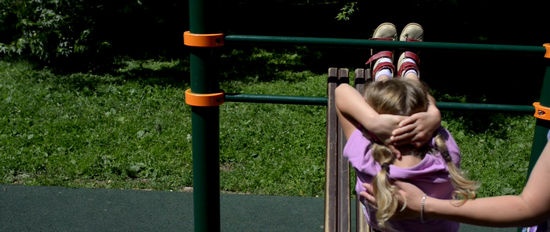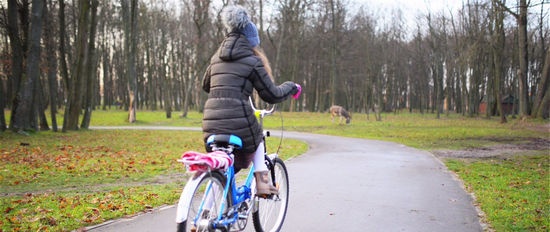Day by hour and minute |
|
To teach how to use your time rationally means to cultivate the habit of constantly taking into account how much time I walked, how much I did my homework, how much I spent watching TV, a computer, etc. To do this, first of all, you need to make a list of those things that must be done during the day, then mark the time allotted for this. The daily routine is a certain routine of work, rest, nutrition and sleep. Many guys do not like the word “regime” itself and often associate it with the idea of a lack of independence, of some kind of “coercion”. In fact, this is not the case. The regime, first of all, is the voluntary fulfillment of the obligations assumed. He teaches everyone to be organized, to use their time wisely. The mode helps to cultivate perseverance, perseverance, hard work, the ability to show your character. Finally, adherence to it is a guarantee of health. The functional basis of the regimen is the development of a conditioned reflex in the child for a while. Repeating from day to day, the regimen becomes habitual. "Sow a habit, - they say among the people, - reap a character!" Parents should be helped to create an appropriate daily routine for the student, and it is especially important to monitor its daily implementation. At first, it is necessary that one of the elders help the student to fulfill the basic requirements: wake him up, remind him of preparing lessons, walking, sleeping. The daily routine is not an end in itself, but just a means of developing the skill of a healthy lifestyle. It cannot be constant for all children, but is formed, first of all, taking into account the individual and age characteristics of children, the interests of the whole family. A. S. Makarenko noted that the regime should be expedient: “Any rule of life should be introduced in the family, not because someone else started it, and not because it is more pleasant to live with such a rule, but only because that it is necessary to achieve our reasonable goal. You yourself should know this goal well, and in the overwhelming majority of cases, children should also know it. " The regime, therefore, must have the character of a "reasonable rule". It is not possible to establish a uniform daily routine for all students, but the main points must be followed by everyone. Below is a sample regimen for students of different age groups, which was developed at the Research Institute of Physiology of Children and Adolescents at the Academy of Pedagogical Sciences.
Education for six-year-olds is difficult. And that's why. There is a breakdown in the usual way of life, new responsibilities appear, physical activity is significantly limited, focused work is required in the lessons. The child needs to establish contacts with many of his peers, get used to the teacher and educator. Difficulties in adaptation (adaptation) at school in some children are manifested in a violation of appetite, in a spa disorder, sometimes accompanied by irritability, tearfulness, complaints of headaches. If this is not associated with the disease, then usually within one to one and a half months, the adverse effects disappear. The challenge for parents in this difficult period for six-year-olds is to make it easier to adjust to school. If one of the parents has the opportunity to be at home in September, use it. Your presence is needed to set the right rhythm for work, to educate the child in the skill for it. Teach your child to keep books and notebooks in order, to collect a portfolio for tomorrow's classes ... These are trifles, but without having mastered them, a person will suffer from carelessness and inconsistency throughout his life. It makes sense to plan basic things with your child for the next day. A constant subject of concern for both children and parents is homework preparation. They must always be cooked at the same time. At the beginning of the school year, in order to sit down for lessons, a certain effort is required from the child, and this is precisely where the help of parents is needed. Over time, starting homework at the same time becomes a habit for the child. The ability to quickly get involved in work and conduct it without being distracted is one of the main conditions for the success of its implementation. At school the bell rang - and everyone sat down at their desks. The teacher said to get the textbooks and open them on such and such a page - and everyone follows his command. It should be noted that the common example of comrades acts, as a rule, in a mobilizing manner, no one wants to lag behind other guys.
Now a few words about the conditions for proper organization of homework. These include the rational (optimal) mode of work, the equipment of the workplace, the procedure for preparing lessons for every day and for the whole week. It is not worth starting to prepare lessons from the most difficult ones, the body should gradually get involved in work. Usually, you should start preparing lessons with an assignment of medium difficulty. Then, when the child gets involved in the work, you can move on to the most difficult lessons, finish self-preparation with easy ones. The speed and efficiency of work depends on the working posture at the table. The least tiring posture is the one in which correct posture is maintained, since in this case the muscles that support the posture are the least tense. You need to sit at the table straight, not hunching over. Keep your head from books and notebooks at a distance of 30-35 cm. In case of an incorrect working posture, posture disturbance and curvature of the spine may occur. Home furniture used by a child or teenager is usually designed for an adult. It is necessary to select the height of the table and chair depending on the height.Depending on the body length, it is necessary to choose the right size of the furniture. When choosing a place in the room for the child's desktop, it should be positioned so that the light from the window falls on the left. If possible, it should not be close to heating devices, since the high air temperature does not contribute to good performance. Notebooks and books should be well lit by light falling from the left from a window or from a table lamp. A table lamp with a lampshade and a 40-60 watt light bulb should be placed on the table near you at a distance of 35-40 cm. Poor illumination reduces visual acuity and leads to rapid fatigue. There should be silence in the room while preparing lessons. Lessons should be prepared carefully and carefully every day. When doing them, you should not rush or be distracted by other things. It is recommended to take a break of 5-10 minutes every 40-45 minutes. This will keep your performance at an optimal level. During a pause in work, you can get up from the table and walk around, stretch, make several bends of the torso forward and to the side, several squats. Exercises for the hands and for the muscles of the eyes are mandatory. After completing home lessons, it is imperative to clean the workplace, collect notebooks and textbooks in a portfolio or knapsack that will be needed the next day at school. The time remaining after preparing home lessons can be used for reading an interesting book, drawing, designing, playing music, sports. But you never know you can think of interesting things! For many children, TV is in the first place among entertainment. They watch literally every program. It is very bad if sitting in front of the TV becomes a habit and replaces real life. Television is needed when it expands the boundaries of what is seen, when it offers a meeting with an intelligent, original thinking person. And yet it is impossible to spend more than 1 hour in front of the TV screen (no more than three to four times a week). It is recommended to watch TV programs in normal lighting, to sit at least 2 meters from the screen.
On Sundays and holidays, you need to be more outdoors, go to the theater, cinema, on excursions, hiking, skiing, skating, and playing sports. However, one should not forget that both on Sunday and during the holidays it is necessary to adhere to a certain daily routine. You can get up at 8.00, be sure to do morning exercises. Set aside time in your daily routine for games, reading, music, sports, drawing and other activities. If you don't plan the time in advance, you may not be in time. Kozlov V. - Health is laid in childhood |
| A son grows up in the family | A teacher has come to your house |
|---|
New recipes
 There are 24 hours a day. 9-11 o'clock schoolchildren sleep, 4-6 hours sit at school at the desk and study, 2-3 hours are spent on homework, about 1-1.5 hours are devoted to social work, helping parents. This means that about 5-6 hours remain daily, given to the child for personal use. This is a huge wealth, but guys usually don't know how to spend it wisely.
There are 24 hours a day. 9-11 o'clock schoolchildren sleep, 4-6 hours sit at school at the desk and study, 2-3 hours are spent on homework, about 1-1.5 hours are devoted to social work, helping parents. This means that about 5-6 hours remain daily, given to the child for personal use. This is a huge wealth, but guys usually don't know how to spend it wisely. Special difficulties in fulfilling the daily regimen are for children who begin to study at the age of 6. The help of their parents is obligatory for them. You should rise in the morning at 7.00-7.30 (taking into account the time spent on the way to school). In a school with six-year-olds, 8-10 minutes of gymnastics are performed. Then lessons begin - four lessons of 35 min. After each lesson there are 15-20 min breaks. After the second lesson - hot breakfast, at 13.00-13.30 - lunch. Compulsory for six-year-old students one and a half to two hours of naps. From 15.00 to 16.00—16.20 hobby classes, quiet games. 16.20-16.40 - afternoon tea. Then an hour and a half walk and outdoor games. Air exposure must be at least 3.5 hours a day. Dinner from 19.00 to 19.30 After dinner, children can do drawing, sculpting, construction, etc.You should not get carried away with a computer or TV: 2-3 TV shows a week, the duration of each of them is no more than 30 minutes. At 20.30 - 21.00 - getting ready for bed; the duration of a night's sleep is at least 10 hours.
Special difficulties in fulfilling the daily regimen are for children who begin to study at the age of 6. The help of their parents is obligatory for them. You should rise in the morning at 7.00-7.30 (taking into account the time spent on the way to school). In a school with six-year-olds, 8-10 minutes of gymnastics are performed. Then lessons begin - four lessons of 35 min. After each lesson there are 15-20 min breaks. After the second lesson - hot breakfast, at 13.00-13.30 - lunch. Compulsory for six-year-old students one and a half to two hours of naps. From 15.00 to 16.00—16.20 hobby classes, quiet games. 16.20-16.40 - afternoon tea. Then an hour and a half walk and outdoor games. Air exposure must be at least 3.5 hours a day. Dinner from 19.00 to 19.30 After dinner, children can do drawing, sculpting, construction, etc.You should not get carried away with a computer or TV: 2-3 TV shows a week, the duration of each of them is no more than 30 minutes. At 20.30 - 21.00 - getting ready for bed; the duration of a night's sleep is at least 10 hours. At home, the situation is different. There is no teacher, parents are at work. Therefore, it is very important to immediately join the work yourself, without any buildup. The longer you delay the start of work, the more effort is required for the child to force himself to start it. Involvement in work is a conscious volitional effort that a student can and should control. In the beginning, the work performed is usually not efficient enough, although it takes a lot of effort. As you draw in, less and less volitional efforts are required, the child develops an interest in the case. In this case, the work is more efficient and leaves a feeling of satisfaction after completion.
At home, the situation is different. There is no teacher, parents are at work. Therefore, it is very important to immediately join the work yourself, without any buildup. The longer you delay the start of work, the more effort is required for the child to force himself to start it. Involvement in work is a conscious volitional effort that a student can and should control. In the beginning, the work performed is usually not efficient enough, although it takes a lot of effort. As you draw in, less and less volitional efforts are required, the child develops an interest in the case. In this case, the work is more efficient and leaves a feeling of satisfaction after completion.
 Often, a lack of time, and, accordingly, an overload occurs among students due to improperly formed work skills. The reduction in these conditions of rest and the transition from active forms of rest to passive are especially dangerous. In this case, a vicious circle arises: the student reacts to failure in learning in the least effective way: reduces the time for night sleep and active forms of rest. Meanwhile, it is well known that a decrease in the duration of night sleep by only 30 minutes leads to a decrease in working capacity the next morning by about 30%.
Often, a lack of time, and, accordingly, an overload occurs among students due to improperly formed work skills. The reduction in these conditions of rest and the transition from active forms of rest to passive are especially dangerous. In this case, a vicious circle arises: the student reacts to failure in learning in the least effective way: reduces the time for night sleep and active forms of rest. Meanwhile, it is well known that a decrease in the duration of night sleep by only 30 minutes leads to a decrease in working capacity the next morning by about 30%.








